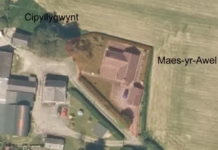Welcome to the official web page of the National Railway Strike Llanelli Festivities!
The National Railway Strike Llanelli 1911 – A Week long programme of events to remember this historic Llanelli event next August 2011.
The Llanelli Rail Strike Commemoration Committee together with support from the Llanelli Town, Llanelli Rural and Carmarthenshire County Councils, Llanelli Trades Council, Historical Society and many other local groups and individuals are arranging a week of festivities culminating on August 21st with a march from the Railway Station to the Box Cemetry where the 2 young men who were killed are buried. In 1911 an enquiry deemed their deaths “justifiable homicide” .A petition is currently being raised asking the government to appologise to the families of these men and to the town for this dreadful incident.
There will be a  full programme of events next August 2011 to make the 100 years since the strike, all the events to commemorate this historic event will be highlighted on this page when they become available. Please come back to check soon.
Above, Troops camped near Llanelli. Item reference: : GTJ69242. This item comes from: Cardiff Central Library (Item reference: Astudiaethau Lleol / Local Studies S 8).Â
Â
Below, a brief outline of the events:
The deaths of two innocent men during the 1911 Llanelli rail strike and the historic strike itself are to be commemorated on the centenary August 2011. For the last time on the U.K mainland the riot act was read and also for the last time British Troops were ordered to fire on unarmed civillians.
A rifle shot rings out. The men by the garden wall stand their ground.
“It’s OK,” one shouts out. “It’s only a blank!” There is laughter. “It’s all right ? they’ve only got blank cartridges,” someone else yells.
Suddenly a live round smashes into the throat of a man sitting on the wall, knocking him backwards onto the grass. Everybody runs. Three men are down, bleeding badly. Two of them are carried into a house and laid out on a table, where they die. On the nearby railway line, the major in charge of the detachment of soldiers orders his men to withdraw.
These events did not take place in Iraq, Afghanistan or some other beleaguered war zone. They happened nearly a 100 years ago Llanelli. The tinplate-producing town was also home to miners and 500 railway workers.
The men working on the railway had very poor wages and a 60 – 72 hour working week, often with compulsory overtime. When the first ever national railway strike happened, the railway workers were joined by their better paid friends from the Tin works and mines. Thousands of pickets blocked the railway lines with their own bodies. For two days and nights, pitched battles raged between pickets and troops for the line’s control through the town. In a bungled intervention, the major in charge ordered his men to fire on the strikers. As news of the deaths spread, soldiers tried to restore order with fixed bayonets. Trucks of the railway company were attacked and set on fire. Detonators exploded, killing a further four townspeople.
John “Jac” John was 21 when he was killed. A mill worker at the Morewood Tinplate Works , he was a promising rugby player for the Oriental Stars.
He was, according to a local rugby reporter, “one of the most popular young men in the town”. A photograph shows a youth with expressive features and dark hair, parted in the middle and rather stylish looking.
Scores of relatively well-paid tinplate workers like himself had come out on the streets in solidarity with the poorer rail workers. He was killed by a bullet through the lung.
The photo of Leonard Worsell shows a man in a dark coat with crewneck top, square-jawed, altogether more wary looking. Although younger than Jac, he looks older. He was a 19-year-old labourer, a Londoner from Penge. He was suffering from tuberculosis, an endemic disease of the urban poor, and was being treated at Alltymynydd sanatorium. He was spending his weekend leave in Llanelli, and had interrupted his shaving in the back kitchen to see what all the fuss was about. He was killed by a bullet to the heart.
Ironically, by the time the fatal shots were fired the strike had been settled. The Railway workers had won better pay and conditions. Similar workers protests on this period, “the Great Unrest”, 1910-19 together with the Llanelli Strike, achieved the first basic legal rights for workers in the U.K.
 Above, funeral of the two young men, Leonard Worsell and John John, who were shot down by soldiers at Llanelli during the Railway Strike Riots of 1911. Item reference: : GTJ69244. This item comes from: Cardiff Central Library (Item reference: Astudiaethau Lleol / Local Studies S 10).
Above, funeral of the two young men, Leonard Worsell and John John, who were shot down by soldiers at Llanelli during the Railway Strike Riots of 1911. Item reference: : GTJ69244. This item comes from: Cardiff Central Library (Item reference: Astudiaethau Lleol / Local Studies S 10).

| [donate]
| Help keep news FREE for our readersSupporting your local community newspaper/online news outlet is crucial now more than ever. If you believe in independent journalism,then consider making a valuable contribution by making a one-time or monthly donation. We operate in rural areas where providing unbiased news can be challenging. |





















